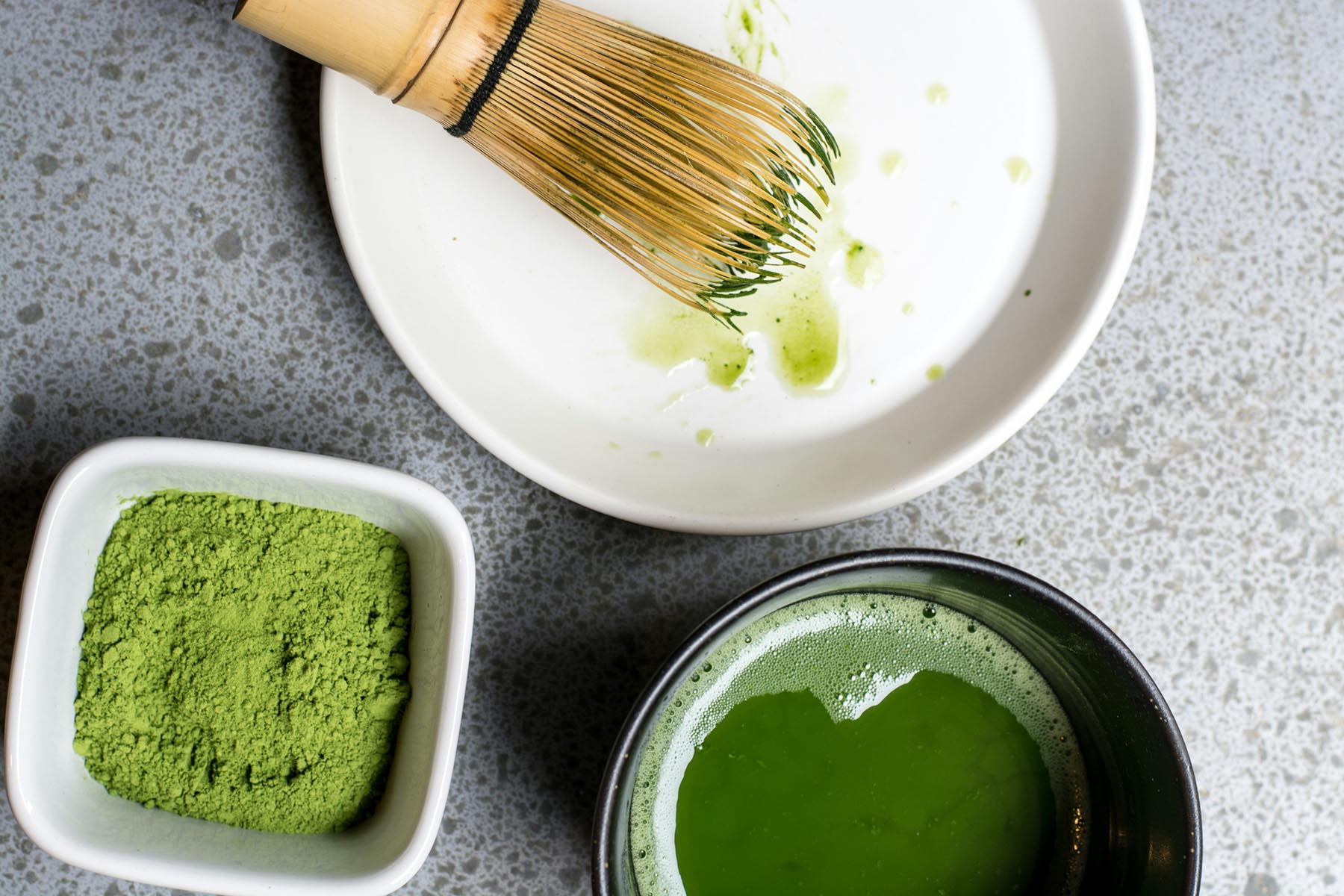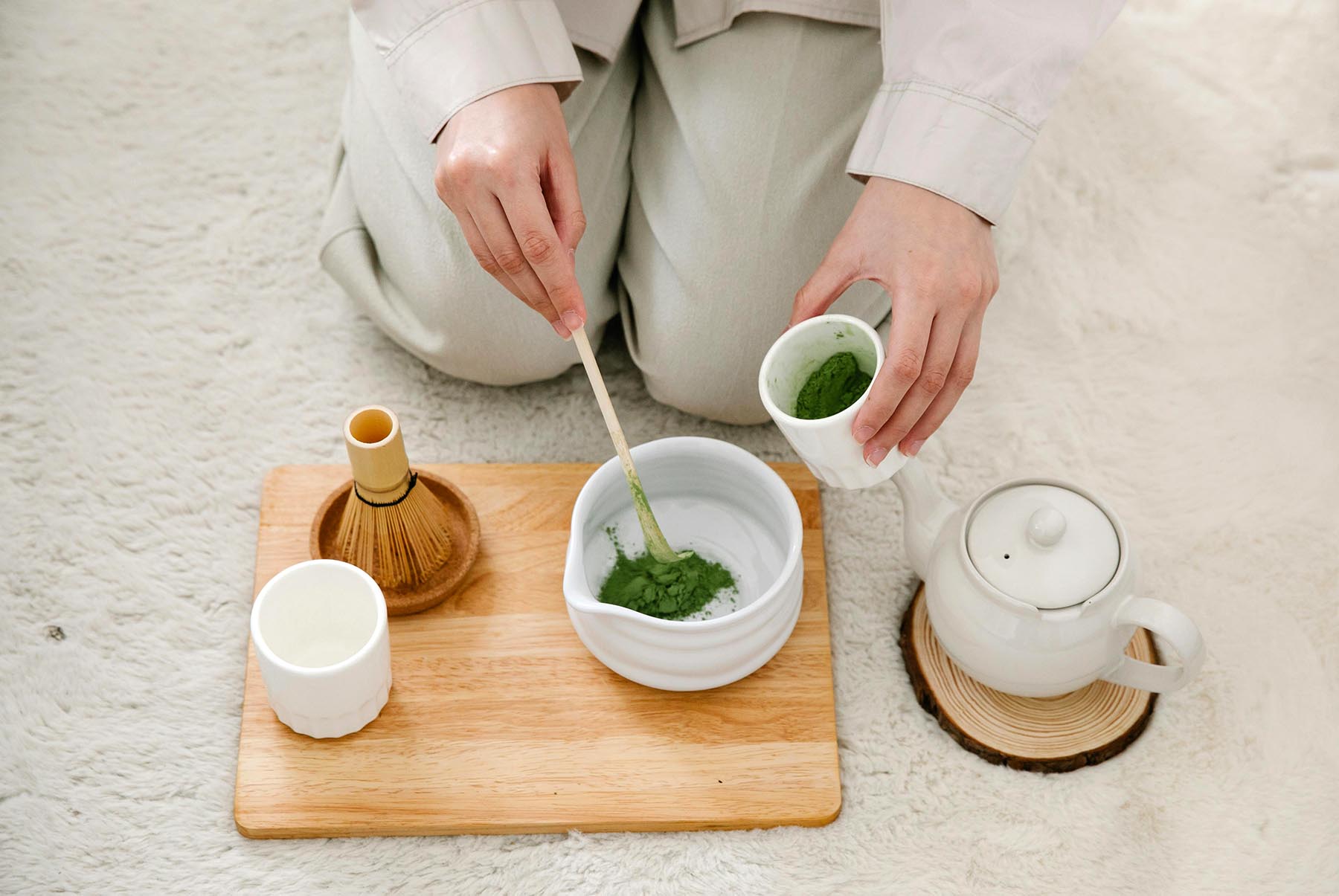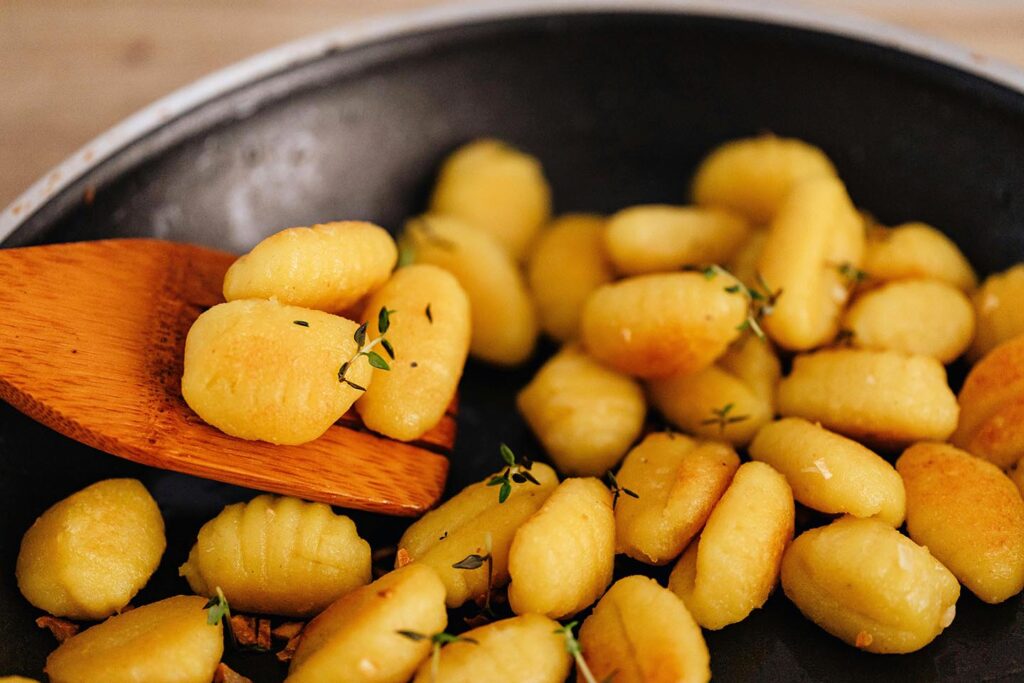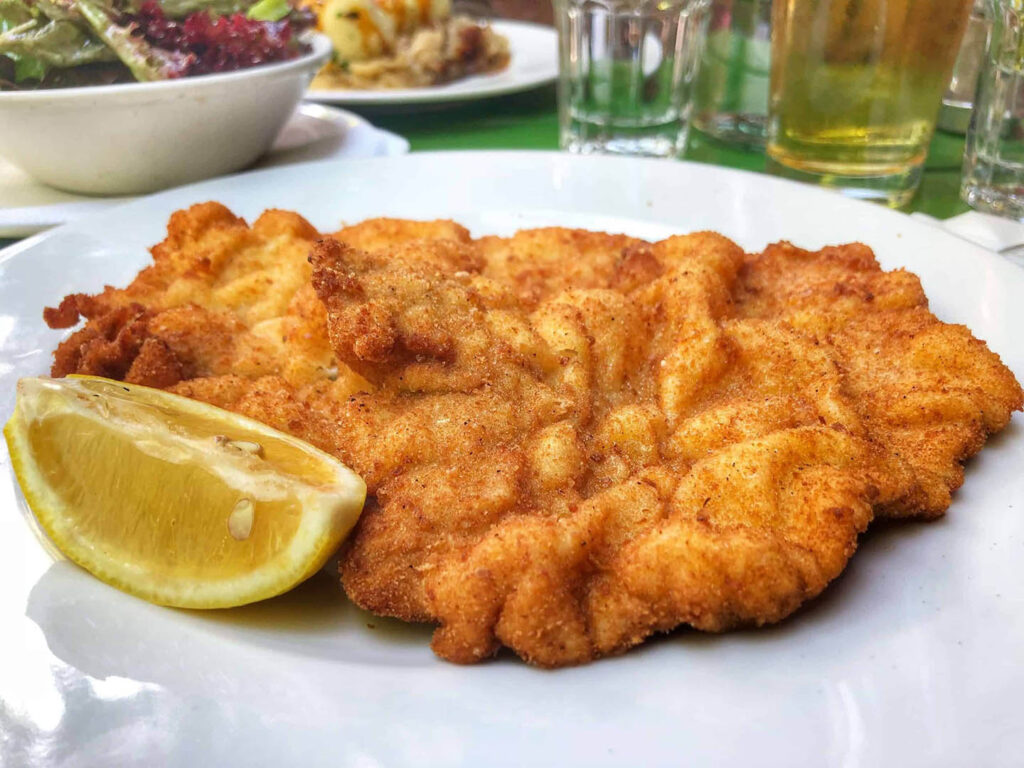
Matcha tea is a type of green tea that is made from finely ground, shade-grown tea leaves. It has been a traditional beverage in Japan for centuries and is known for its vibrant green color, rich umami flavor, and potential health benefits.
Matcha tea is primarily grown and produced in Japan, with some production in other countries like China, Taiwan, and Korea. In Japan, the most famous areas for growing matcha tea are in the southern part of the country, including Uji, Nishio, and Shizuoka. These regions’ climate and soil conditions are ideal for producing vibrant, rich, high-quality matcha tea.
The tea plants used to produce matcha are typically grown in shaded conditions or covered with shade cloths for a few weeks before harvest to increase the levels of chlorophyll and amino acids in the leaves, resulting in a sweeter and more savory flavor. The leaves are then harvested, steamed, dried, and ground into a fine powder using traditional granite stone mills. The entire process is carefully controlled to produce the highest quality matcha tea.
How is matcha tea traditionally brewed?

To brew traditional matcha tea, you will need a few key tools:
- A matcha bowl or wide-mouthed cup
- A bamboo matcha whisk (chasen)
- A bamboo scoop (chashaku)
- Matcha tea powder
- Hot water
Once you have the necessary items, you begin by heating your water to around 175°F (80°C). It is essential not to use boiling water as it can scorch the tea and affect its flavor. Next, add 1-2 teaspoons of matcha powder to your matcha bowl (or cup) using the bamboo scoop. Pour around 2 ounces of hot water over the matcha powder, using a back-and-forth motion, until the powder is fully dissolved. Use the bamboo whisk to gently whisk the matcha tea until a frothy layer forms on the surface. Move the whisk back and forth in a “W” shape to ensure the powder is thoroughly mixed and frothy. Once the tea is fully whisked, it is ready to enjoy! You can drink it as is or add sweetener or milk, depending on your preference.
The exact measurements and brewing time can vary widely depending on someone’s personal preference as well as the quality of the matcha. Experimenting with different ratios and techniques can help you find the perfect matcha tea that suits your taste.
What are the potential health benefits of drinking matcha tea?
Matcha tea has been associated with a range of potential health benefits, including (but not limited to):
- Rich in Antioxidants: Matcha tea is loaded with antioxidants called catechins, which may help protect the body against damage from free radicals and may reduce the risk of chronic diseases like heart disease and cancer.
- Can Boost Energy and Alertness: Matcha tea contains caffeine and L-theanine, which promotes relaxation and reduces stress while enhancing mental alertness and concentration.
- Can Improve Heart Health: Studies suggest that drinking matcha tea may help improve heart health by reducing the risk of high blood pressure, cholesterol, and triglyceride levels.
- May Enhance Your Immune System: The catechins in matcha tea may help boost your immune system by protecting against harmful pathogens and viruses.
- May Support Weight Loss: Matcha tea has been linked to weight loss by increasing metabolism and fat burning, which may help with weight loss when consumed as part of a healthy diet and exercise routine.
- Can Promote Relaxation: The L-theanine in matcha tea may promote relaxation and reduce stress levels, which can positively impact overall health and well-being.
Tasty frothy matcha tea is enjoyed worldwide for its umami flavor and potential health benefits. It contains antioxidants, caffeine, and other beneficial compounds that may provide various health benefits, including improved mental alertness, increased relaxation, and possible protection against certain chronic diseases. Please enjoy in moderation. Always consult a doctor before changing your diet or if you have questions about the health benefits of foods and beverages.
Do you drink matcha tea? What do you think of its unique and earthy flavor? Let us know in the comments!



